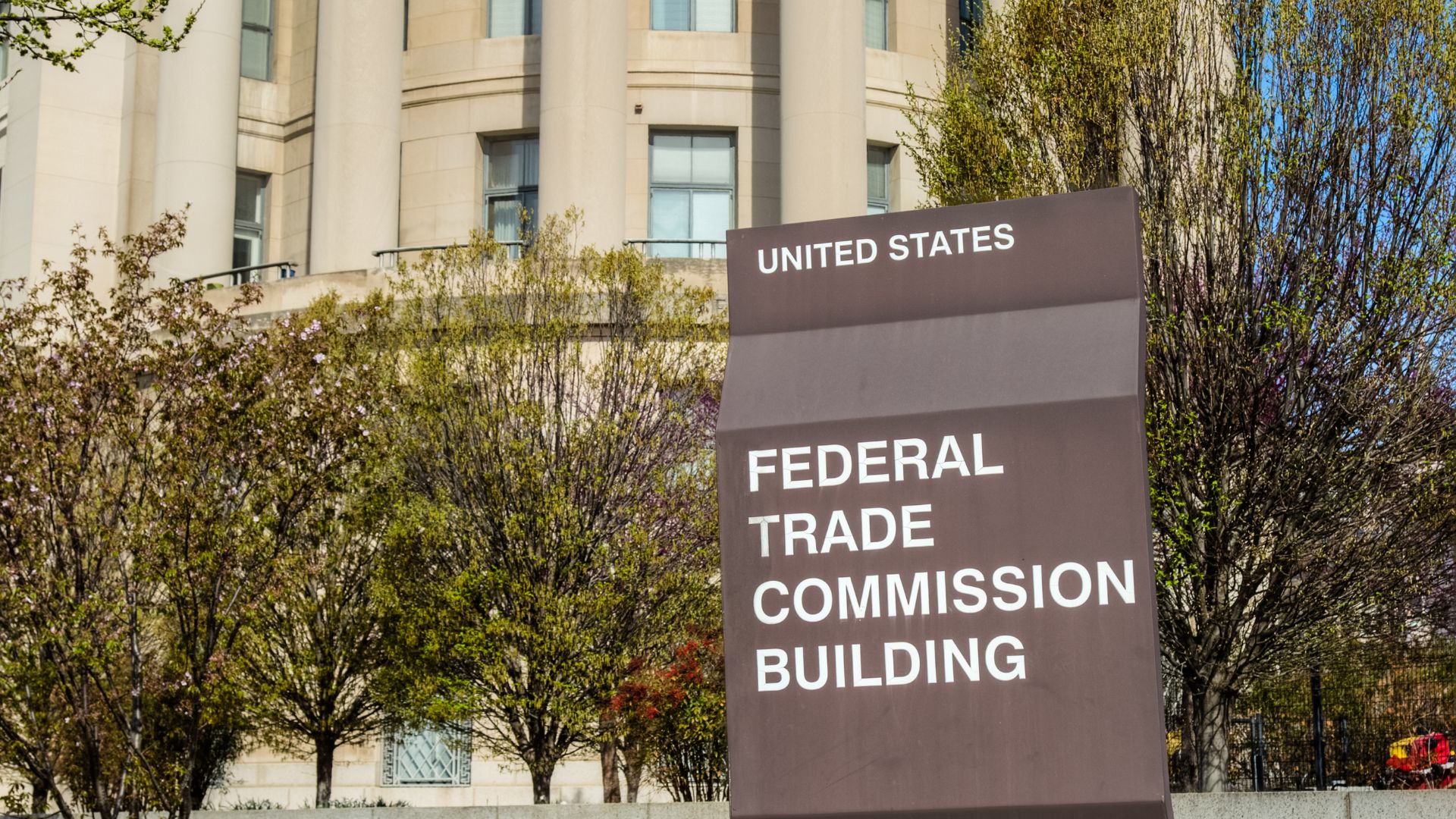
FEDERAL TRADE COMMISSION RULE BANNING WORKER NON-COMPETES
May 2024
As a part of the Barnes Walker Educational Series, we are sending this letter to our clients and friends of the
firm who may have agreed to a non-compete clause or agreement themselves, or with their workers if they own a
business, or who may have friends and acquaintances who have entered into non-competes to alert them to this
important new Federal Trade Commission (the “FTC”) rule.
On May 1, 2024, the FTC, on a 3-2 vote, issued a new rule that bans worker non-competes (the
“Non-Compete Rule”). As its authority for this Non-Compete Rule, the FTC cited Sections 5 & 6(g) of the Federal
Trade Commission Act. The FTC determined and declared that “unfair methods of competition” are unlawful pursuant
to Section 5, and that the FTC has a right to issue such a rule banning these unfair methods under Section 6(g) of the
Act. In the 570-page rule, the FTC recites its evidence and findings in support of, and justifying, its determination that
worker non-competes are unfair methods of competition.
The New Non-Compete Rule
The rule becomes effective September 4, 2024. It states:
With respect to a worker [defined below] …, it is an unfair method of competition for a person [any individual or entity who hires]:
(i) To enter into or attempt to enter into a non-compete clause;
(ii) To enforce or attempt to enforce a non-compete clause; or
(iii) To represent that the worker is subject to a non-compete clause.
Worker Defined
A worker is a natural person who is a current or former employee, independent contractor, extern, intern,
volunteer, apprentice, or a sole proprietor. Therefore, it does not matter whether the worker was paid or an
unpaid volunteer or considered an employee or independent contractor under labor, wage and hour, or workers’
compensation laws – the Non-Compete Rule applies to them. Workers are individuals, not entities, and the term applies
to current and former workers. It is unclear, however, whether someone who is defined as a worker, or his or her employer,
could create a corporation or limited liability company for the worker to avoid the rule applying to them.
Those Prohibited
This letter refers to “an individual or entity who hires” or “a hiring individual or entity” when mentioning those
who are prohibited from requiring or enforcing a worker non-compete by the rule, because these words are intended to
describe more than “employers,” which could be interpreted to limit the Non-Compete Rule strictly to employers and
employees rather than all the various types of “workers” described in the rule.
“Non-Compete Clause” Defined
A “non-compete clause” means a term, a condition, or a workplace policy
of employment, whether written or oral, that “prohibits a worker from, penalizes a worker for, or functions to prevent a
worker from:
- seeking or accepting work in the United States with a different person where such work would begin after
the conclusion of the employment that includes the term or condition; or - operating a business in the United States after the conclusion of the employment that includes the term or
condition.”
This definition does not specifically prohibit agreements not to solicit the customers or clients of a hiring
individual or entity or prohibiting the hiring of the individual’s or entity’s remaining workers after a worker no longer
works for the individual or entity. However, note that the definition prohibits a term that “prohibits … or functions to
prevent a worker from” competing. Further, there is a model notice provided by the FTC to meet the Non-Compete Rule’s
notice requirement to workers (discussed below). Two provisions of that notice to workers are:
“You may run your own business – even if it competes with [Employer Name].”
“You may compete with [Employer Name] following your employment with [Employer Name].”
Arguably, a prohibition against soliciting the customers or clients of a hiring individual or entity prohibits or
functions to prevent a worker from competing against that individual or entity as to that individual’s or entity’s existing
customers and violates the Non-Compete Rule. Extending that logic even further, arguably preventing a worker from
hiring his or her former coworkers for the worker’s new business prevents the worker’s new business from competing
employee-wise with the former hiring individual or entity and thus also violates the Non-Compete Rule.
Modified Rule for “Senior Executives”
The new Non-Compete Rule does not apply to senior executives who have entered into non-competes prior to
September 4, 2024, which continue to be enforceable. However, entering into a new non-compete with a senior executive
on or after September 4, 2024, is prohibited. A “senior executive” is a worker who is or was in a policy-making position and
who made $151,164.00 or more in compensation on an annualized basis in the preceding year. People in policy-making
positions include the president, chief executive officer, or the equivalent, and any other officer such as a vice president,
secretary, treasurer, principal or chief financial officer, comptroller or principal accounting officer, or the equivalent to any
of the preceding if they make policy for the entity. Compensation includes salary, commissions, and nondiscretionary
bonuses or other nondiscretionary compensation (which may include stock, stock options, and stock warrants), but
excludes fringe benefits.
Required Notice
The Non-Compete Rule requires that a hiring individual or entity must give a notice
to all current and former workers who have an existing non-compete clause by September 4, 2024, which states the non-
compete clause is unenforceable. The notice must be written and “clear and conspicuous.” The model notice
recommended by the FTC that provides “safe harbor” protection is attached to this letter, except the last two paragraphs
entitled “Note” and “Senior Executives” are not a part of the recommended model notice.
A hiring individual or entity may want to keep the Note in the notice for the reasons stated in the Note or may
wish to delete it since it is unknown whether the FTC would object to the Note, as it goes beyond and arguably weakens
or mitigates its model language. Although not provided as a part of the model notice, a hiring individual or entity may
want to keep the Senior Executives paragraph when giving the notice to senior executives who have entered into non-
competes prior to September 4, 2024. (Click here for the Word format of the notice that we provided for your use.)
The notice may be delivered by hand, U.S. mail, email, or text. Proof of delivery, while not required, should be
obtained and kept in a safe place. Courier service, although not mentioned, should be acceptable with proof of delivery to
the worker.
The notice need not be given if the hiring individual or entity has no record of a worker’s street address, email
address, or mobile telephone number. While not specifically excepted, proof of failed delivery, after using all of the
preceding delivery methods, should also exempt a hiring individual or entity from the notice requirement.
Exceptions to the Non-Compete Rule
The new Non-Compete Rule does not apply to non-competes entered
into by franchisees with their franchisors, sellers of the stock or assets of a business, and sellers of ownership interests in
a business, or to violations of a non-compete accruing prior to September 4, 2024.
Effective Date
Although the effective date of the Non-Compete Rule is September 4, 2024, hiring individuals
or entities may decide to start complying with the Non-Compete Rule and advising workers that they are doing so prior
to this effective date.
Lawsuits to Set Aside the Non-Compete Rule
Already, the U.S. Chamber of Commerce and others have
filed suit to vacate and set aside the Non-Compete Rule and to enjoin the FTC from enforcing it against those filing the
lawsuit. Their arguments include, among others: (1) that non-competes have existed since almost the beginning of the
country and certainly longer than the 110-year existence of the FTC, and they have never been ruled an unfair method of
competition; (2) that, traditionally, the 50 states have regulated, restricted, and limited the application of non-competes
under state law; (3) that, traditionally, only Congress has passed statutes defining unfair competition; and (4) the FTC has
never ruled all worker non-competes as unfair competition, instead just enforcing the Federal Trade Commission Act
against selected, over-reaching non-competes on a case-by-case basis.
Compliance
Hiring individuals and entities may want to wait until just before September 4, 2024, to comply
with the Non-Compete Rule in case a federal court within their jurisdiction issues an emergency injunction to delay the
effective date and enforcement of the rule. However, anyone not complying with the Non-Compete Rule could be sued
in federal court by the FTC and be subject to the payment of damages for violating the rule. Workers can report such
violations to the FTC’s Bureau of Competition by emailing noncompete@ftc.gov.
Please note that this letter does not discuss all the details related to the new Non-Compete Rule or giving the
required notice, if applicable, to workers. Finally, remember that the deadline for complying with, or benefitting from,
the Non-Compete Rule and giving and receiving the required notice is September 4, 2024.
Contact Information:
Tel: 941-867-7818
Email: info@barneswalker.com
LinkedIn | Facebook | Instagram | YouTube | Reddit | X/Twitter
Trust • Experience • Results
Ready to Get Started?
Get started with Barnes Walker today.











